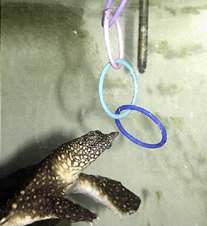There is a lot to be said for keeping things simple in a complex world. In our work as veterinary surgeons we are often bombarded by the need to make decisions, many of which will be based on incomplete information. The resulting complexity can lead to uncertainty and anxiety.
You may have heard of the butterfly theory that postulates that a butterfly flapping its wings in Tokyo could conceivably affect the weather in Chicago. In other words, multiple tiny changes with unpredictable results can result in very different outcomes and long-term weather forecasts can never be completely accurate! Is it any wonder then that the multiple variables involved in disease progression and patient care mean we often don’t know how things will turn out?
This idea was to underpin the foundations of chaos theory, which says that every system has the potential to fall into chaos. In the 1980s the concept started to be applied to management by Tom Peters. He argued that fluctuating economic conditions, competition, technology and the need to be responsive to customers meant that organisations had to change and be capable of reacting quickly. His suggestion was that to survive long term, businesses had to be open to change and respond to it in a way that didn’t rely on its fixed structures or rules. Flatter hierarchies, more openness and a creative approach to problem solving promised possible solutions.
Our profession is experiencing a huge amount of change right now and if we have incomplete information regarding how things are going to turn out, it’s clear that we have to be able to adapt and change. We can be more fluid – just as we would be when we manage a case and adjust the treatment depending on how the patient has responded.
Accepting that no plan is set in stone and that no practice protocol will ever be the “final-final” version might be disconcerting. There is a certain amount of security that comes from knowing what lies ahead, what might be expected of us and following the rules. But realistically, it’s probably something we will have to leave in the past more and more as the speed of change increases. Already, it’s predicted that artificial intelligence will mean jobs change and some disappear.
We are seeing today’s employees embracing the idea of having portfolio careers, to work flexibly at various points and accept that their career paths may be less than linear. Perhaps that’s not at all comforting or maybe you find the idea of giving yourself permission to step off that traditional career ladder refreshing.
I know that for me, accepting the unpredictability of my career path has led to more enriching and satisfying experiences, allowing me to learn and grow. In turn though, it also means that my income can be less predictable and I have had to accept the trappings of “success” as just that – trappings that can keep you working long stressful hours even if you find that work unfulfilling.
Practices can find smarter ways to work or generate passive income and look at other end goals
As highly qualified individuals we have an expectation that our salaries will be commensurate with the time we have spent gaining the knowledge we need to do our work and the specialised skills we have developed. When we feel that doesn’t happen, it can be a source of considerable dissatisfaction. A high salary could allow us to spend time travelling, enjoy beautiful things, perhaps work a little less. But there are clearly other ways to achieve those things too.
Practices can find smarter ways to work or generate passive income and look at other end goals, such as employee satisfaction and retention alongside financial measures; employees can be rewarded in ways that are more meaningful to them as individuals.
For me, simplicity is about thinking about what really matters to me as an individual and giving myself the freedom to find ways to achieve my goals. I’m not sure exactly what route I will take to get there and I will enjoy the view along the way. If you can hear the fluttering of butterfly wings, how will you react? What can you change? Where will your practice go next? We all need to stay mobile and to find better, simpler ways to deliver results that matter.











